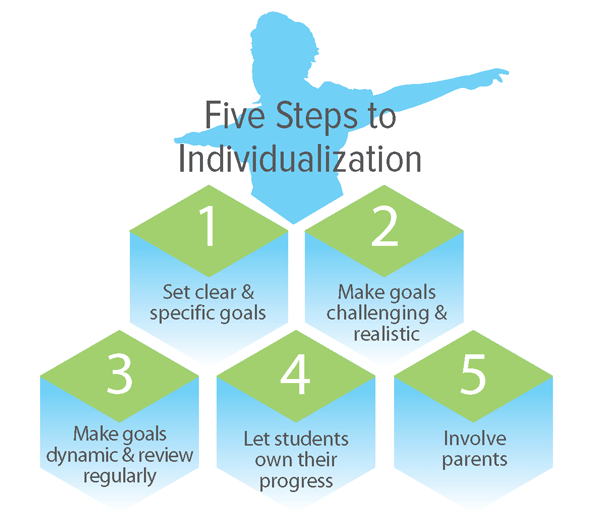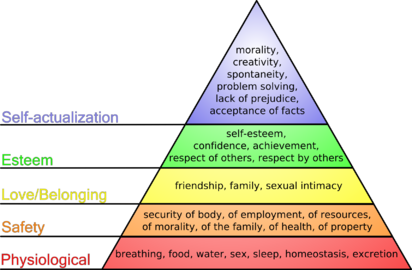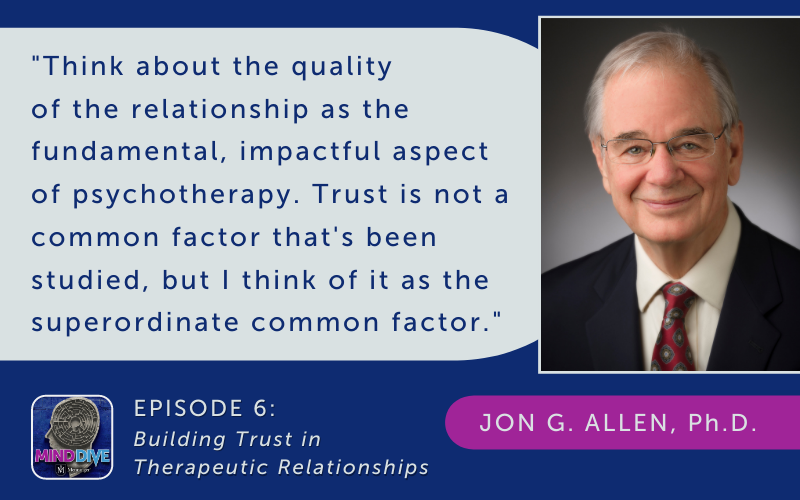Table of Contents
- Understanding Special Education
- Individualized Instruction
- Behavioral Management
- Limited Resources
- Emotional Toll
- Impactful Relationships
- Advocacy and Inclusion
- Personal Growth
- Making a Difference
- Supporting Special Education Teachers
- Professional Development
- Mental Health Support
- Reducing Administrative Burden
- Community Engagement
Teaching is a noble profession, but within it, special education teachers stand as a beacon of patience, empathy and dedication. Their role involves not only imparting knowledge but also nurturing the potential of students with diverse abilities, needs and challenges. In this article, we explore the distinctive challenges and rewards that come with being a special education teacher.
Teaching is undoubtedly a noble profession, one that shapes the future of our society by imparting knowledge and instilling essential skills in the next generation. Yet, within the broader realm of education, special education teachers emerge as exceptional individuals who embody the very essence of patience, empathy and dedication. Their role extends far beyond conventional teaching methods; they serve as advocates, mentors and champions for students who possess diverse abilities, needs and challenges. In this article, we embark on a journey to gain a deeper understanding of the remarkable world of special education, shedding light on the distinctive challenges and rewards that accompany the role of a special education teacher.
Beyond the Conventional Classroom
While traditional education focuses on a standardized approach, special education opens the door to a profoundly varied spectrum of students. Special education teachers work with children and young adults who may have a wide range of disabilities, including but not limited to autism, dyslexia, ADHD, physical impairments and emotional disorders. This diversity necessitates a teaching approach that goes far beyond the one-size-fits-all model.
The Role of Special Education Teachers
Special education teachers are not merely disseminators of knowledge; they are the architects of customized learning experiences. Their role involves:
Individualized Instruction: Special education teachers meticulously craft lesson plans tailored to the unique needs and abilities of each student. This requires an in-depth understanding of various disabilities and the creativity to adapt teaching methods accordingly.
Advocacy and Support: They serve as advocates for their students, navigating complex systems to ensure that students receive the appropriate resources, accommodations and support services they require to thrive academically and personally.
Emotional Intelligence: These teachers possess an exceptional level of emotional intelligence, as they often work with students who may face significant emotional and behavioral challenges. Building trust and rapport with students is crucial for creating a safe and conducive learning environment.
Continuous Learning: Special education teachers must be perpetual learners, staying abreast of the latest research, techniques and technologies in their field to provide the best possible support for their students.
Challenges and Rewards
Special education teaching comes with its own set of challenges:
Resource Constraints: Special education programs frequently face resource limitations, including inadequate funding and a shortage of specialized staff. Teachers must find creative solutions within these constraints.
Emotional Toll: Witnessing students grapple with disabilities and facing societal stigmatization can be emotionally taxing. Special education teachers must prioritize self-care and seek support from colleagues and mental health professionals.
Despite these challenges, the rewards of being a special education teacher are immeasurable:
Impactful Relationships: Special education teachers form deep and lasting connections with their students. Witnessing their progress and achievements can be profoundly rewarding.
Advocacy and Inclusion: They actively contribute to the promotion of inclusivity and equal opportunities in education, fostering a more compassionate and accepting society.
Personal Growth: The continuous growth and learning required in this field provide a profound sense of purpose and fulfillment.
Making a Difference: Special education teachers directly influence the lives of their students, contributing to a more inclusive and empathetic society.
In conclusion, special education teachers are unsung heroes in the educational landscape, demonstrating extraordinary dedication and empathy in their work. Their unique role in nurturing the potential of students with diverse abilities and challenges is vital for creating a more inclusive and equitable society. As we delve deeper into the world of special education, we gain a profound appreciation for these educators who shine as beacons of hope, guidance and transformation in the lives of their students.
To expand your knowledge on this subject, make sure to read on at this location: Top 10 Reasons To Get A Special Education Degree | Bachelor
Understanding Special Education
Special education refers to the tailored instructional and support services provided to students with disabilities, learning disorders or other exceptional needs. These students may face various challenges, including physical, cognitive, emotional or behavioral differences. The primary goal of special education is to enable these students to access a quality education and reach their fullest potential.
Special education is a cornerstone of our educational system, a testament to our commitment to inclusivity and equal opportunities for all learners. It is a multifaceted field that recognizes the unique and diverse needs of students who may face a wide spectrum of challenges, be they physical, cognitive, emotional or behavioral in nature. Special education professionals, including teachers, therapists and support staff, work tirelessly to tailor instructional strategies, accommodations and interventions to meet the specific needs of each student, ensuring they have equitable access to a quality education.
At the heart of special education lies the unwavering belief in the potential of every student, regardless of their exceptional needs. It’s about understanding that these students are not defined by their disabilities or differences but are individuals with their own strengths, talents and aspirations. Special education strives to nurture these strengths while providing the necessary support to address areas of challenge.
In practice, special education takes on many forms, from individualized education plans (IEPs) that outline specific goals and accommodations to differentiated instruction that caters to diverse learning styles. These tailored approaches are designed to bridge the gap between a student’s current abilities and their fullest potential.
Moreover, special education is not a one-size-fits-all solution. It is a dynamic field that evolves to meet the changing needs of students and the ever-advancing understanding of disabilities. Special educators continually refine their techniques and embrace innovative practices to provide the most effective support possible.
Inclusivity is a fundamental principle of special education. It emphasizes the importance of educating students with disabilities in the least restrictive environment, which means placing them in regular education classrooms whenever possible. Inclusive education not only benefits students with disabilities by fostering social and academic growth but also enriches the overall classroom experience for all students, promoting empathy and understanding.
Beyond academics, special education professionals often collaborate with therapists, counselors and families to address the holistic well-being of students. Emotional and behavioral support is an integral part of special education, helping students develop essential life skills, emotional regulation and social competence.
In conclusion, special education is a vital component of our educational landscape, ensuring that every student, regardless of their exceptional needs, has the opportunity to access a quality education and reach their fullest potential. It embodies the principles of inclusivity, equity and individualized support, serving as a beacon of hope and opportunity for students who face unique challenges on their educational journey. Through the dedication and expertise of special education professionals, we affirm our commitment to leaving no child behind and empowering every student to thrive.
For a comprehensive look at this subject, we invite you to read more on this dedicated page: Special Education Teacher Interview Questions [+Answers]

Individualized Instruction
Special education teachers must create highly individualized learning plans for each student, considering their unique abilities and needs. This requires a deep understanding of various disabilities and the ability to adapt teaching methods accordingly.
Special education teachers shoulder a remarkable responsibility, one that demands both unwavering dedication and a profound understanding of the diverse needs of their students. They embark on a journey of individualization, crafting highly tailored learning plans that unlock the potential of every student, regardless of their abilities or disabilities. This process is a testament to the unwavering commitment to inclusive education.
At the heart of this endeavor lies the need for a deep and nuanced understanding of various disabilities. Special education teachers are not just educators; they are advocates, allies and experts in their field. They must be well-versed in the intricacies of various learning disabilities, sensory impairments and developmental disorders. This knowledge empowers them to recognize the unique strengths and challenges each student brings to the classroom.
Moreover, special education teachers possess the remarkable ability to adapt teaching methods with precision and creativity. They are like educational alchemists, transforming conventional lesson plans into personalized learning experiences that cater to each student’s needs. They employ a diverse toolkit of instructional strategies, assistive technologies and accommodations to ensure that learning is accessible to all.
Additionally, special education teachers are champions of inclusion. They create classrooms that celebrate diversity and foster a sense of belonging. They recognize that disability does not define a student’s potential and that every individual deserves the opportunity to thrive in a supportive and inclusive educational environment. Their dedication to this principle is not just transformative for their students but also for society at large.
Furthermore, the role of special education teachers extends beyond academics. They are often mentors, counselors and advocates for their students, working closely with families, therapists and support staff to provide a holistic approach to education. They ensure that their students receive not only quality academic instruction but also the emotional and social support they need to succeed.
In conclusion, special education teachers are unsung heroes in the realm of education. They possess a unique blend of expertise, compassion and adaptability. Their commitment to creating highly individualized learning plans for students with diverse abilities and needs is a testament to the power of inclusive education. They unlock the potential of every student, nurturing their growth and guiding them toward a future filled with possibilities.
Looking for more insights? You’ll find them right here in our extended coverage: Embracing a Fulfilling Career: The Rewards and Challenges of …

Behavioral Management
Many special education students may exhibit challenging behaviors due to their conditions. Special education teachers need strong skills in behavior management and de-escalation techniques to maintain a safe and productive classroom environment.
Supporting students with special needs in an educational setting requires a multifaceted approach that extends beyond traditional teaching methods. Many special education students may exhibit challenging behaviors, which can be a result of their unique conditions, communication difficulties or sensory sensitivities. In light of this, special education teachers play a critical role in fostering a safe and productive classroom environment. To effectively navigate these challenges, they need a robust toolkit of behavior management and de-escalation techniques.
One of the foundational principles of behavior management is proactive planning. Special education teachers meticulously design their classroom environments and routines to minimize triggers for challenging behaviors. They create structured schedules, clear expectations and visual supports that provide students with a sense of predictability and security. By addressing potential triggers in advance, teachers can prevent many behavioral issues from arising.
Moreover, special education teachers develop individualized behavior intervention plans (BIPs) for students who require them. These plans are tailored to each student’s unique needs and challenges. They involve clear goals, strategies and supports to promote positive behaviors and address challenging ones. BIPs often include techniques such as positive reinforcement, token systems or social stories, which are designed to motivate and guide students toward desired behaviors.
Another essential component of effective behavior management is the use of positive behavior support (PBS). This approach focuses on acknowledging and reinforcing positive behaviors rather than solely reacting to negative ones. Special education teachers work to create a classroom culture where students are encouraged and rewarded for demonstrating appropriate behaviors. By emphasizing the positive, teachers can often reduce the occurrence of challenging behaviors.
When challenging behaviors do arise, special education teachers are skilled in de-escalation techniques. These techniques are designed to defuse tense situations and help students regain control of their emotions. They may involve strategies such as providing sensory breaks, using calming techniques like deep breathing or mindfulness or employing verbal communication that is calming and reassuring.
Moreover, special education teachers are adept at utilizing communication strategies tailored to individual students. For non-verbal or minimally verbal students, alternative communication systems such as augmentative and alternative communication (AAC) devices or picture exchange systems may be used to help them express their needs and feelings, reducing frustration and challenging behaviors.
In addition to their classroom skills, special education teachers often collaborate closely with other professionals, including speech therapists, occupational therapists and behavior specialists. This interdisciplinary approach allows for a holistic understanding of each student’s needs and the development of comprehensive strategies for addressing challenging behaviors.
In conclusion, special education teachers are highly trained professionals who play a crucial role in creating a safe and productive learning environment for students with diverse needs. Their expertise in behavior management and de-escalation techniques, along with their commitment to individualized support, ensures that every student has the opportunity to thrive academically and socially. Special education teachers are champions of inclusion and advocates for the success of all students, regardless of their challenges or unique conditions.
Should you desire more in-depth information, it’s available for your perusal on this page: Collaborative Team Teaching: Challenges and Rewards | Edutopia

Limited Resources
Special education programs often face resource constraints, including inadequate funding and a shortage of specialized staff. Teachers must find creative solutions to provide the best support with limited resources.
Special education programs, while vital for the inclusion and success of students with diverse learning needs, frequently grapple with resource constraints that pose significant challenges. These constraints, encompassing inadequate funding and a shortage of specialized staff, necessitate a high degree of creativity and innovation from educators and administrators to ensure students receive the best possible support. Expanding on this idea:
Resourceful Teaching Methods: Teachers in special education programs become masters of resourceful teaching. They adapt and tailor their instructional approaches to make the most of available resources, often using creative teaching methods, technology and differentiated instruction to meet the unique needs of each student. This adaptability highlights the commitment of special education educators to provide quality education regardless of constraints.
Collaborative Networks: Recognizing the scarcity of specialized staff, special education teachers often form collaborative networks within their schools and communities. They share expertise, strategies and best practices with general education teachers, creating a more inclusive learning environment for students with special needs. This collaborative approach extends beyond the classroom, involving parents, support staff and community organizations to provide a comprehensive support system.
Advocacy and Grant Writing: To address funding limitations, special education teachers frequently engage in advocacy efforts. They advocate for increased funding at the school and district levels, emphasizing the importance of providing adequate resources for students with special needs. Additionally, they often write grants and seek external funding sources to supplement their budgets, ensuring that essential materials and technology are available for their students.
Innovative Assistive Technology: Special education educators harness the power of innovative assistive technology to bridge resource gaps. These tools can help students with disabilities access and engage with the curriculum more effectively. Whether it’s screen readers, speech-to-text software or communication devices, technology plays a crucial role in leveling the playing field for students with diverse needs.
Data-Driven Decision Making: Special education teachers often rely on data-driven decision-making processes. By continuously assessing student progress and needs, they can allocate resources more efficiently. This targeted approach ensures that interventions and supports are directed where they will have the most significant impact.
Professional Development: Special education teachers engage in ongoing professional development to enhance their skills and stay updated on best practices. They seek out training opportunities and workshops to build their capacity in areas such as behavior management, inclusive teaching strategies and working with students with specific disabilities.
Parent and Community Involvement: To compensate for resource limitations, special education programs actively involve parents and the community. Parents become partners in their child’s education, working closely with teachers to reinforce learning and advocate for their child’s needs. Community organizations and volunteers can also play a crucial role in providing additional support and resources.
Advancing Inclusivity: Despite resource constraints, special education programs continuously strive to create inclusive and welcoming school cultures. They emphasize acceptance, diversity and equity to foster an environment where all students, regardless of their abilities, feel valued and included.
In conclusion, special education programs operate in challenging resource-constrained environments, but dedicated educators consistently find innovative ways to provide the best possible support to students with special needs. Their resourcefulness, collaborative spirit and commitment to inclusivity ensure that students receive the individualized education and support they require to thrive and reach their full potential.
To expand your knowledge on this subject, make sure to read on at this location: Equity and Quality in Education: Supporting Disadvantaged …

Emotional Toll
The emotional toll of witnessing students struggle with disabilities and facing societal stigmatization can be heavy. Special education teachers need to prioritize self-care and seek support from colleagues and mental health professionals.
Navigating the complex terrain of special education as a teacher can indeed take a significant emotional toll. To further explore this idea, let’s delve into the importance of self-care and the avenues through which special education teachers can find the support they need:
Prioritizing Self-Care: Special education teachers often find themselves deeply invested in the well-being and progress of their students. While this dedication is commendable, it’s essential to prioritize self-care. This means recognizing that taking care of oneself is not selfish but a crucial aspect of being able to provide the best support possible.
Recognizing the Emotional Impact: Special education teachers often witness the challenges and triumphs of their students in a very personal way. They might experience feelings of frustration, helplessness or even guilt when they encounter barriers in their students’ journeys. Recognizing and acknowledging these emotions is the first step in addressing them.
Building Resilience: Resilience is a vital trait for special education teachers. They can develop resilience by finding healthy outlets for stress, such as exercise, meditation or creative hobbies. These activities can help manage emotional strain and promote mental well-being.
Seeking Professional Support: Special education teachers should not hesitate to seek support from mental health professionals when needed. Therapy or counseling can provide a safe space to explore emotions and coping strategies, ensuring they remain mentally and emotionally healthy.
Peer Support Networks: Colleagues in the special education field can be invaluable sources of support. Sharing experiences, advice and coping strategies with fellow educators who understand the unique challenges can be immensely comforting and helpful.
Advocating for Resources: Special education teachers should advocate for the resources and support they need within their schools and districts. Adequate support staff, professional development opportunities and manageable workloads can contribute to reduced stress and a healthier work-life balance.
Maintaining Boundaries: Establishing clear boundaries between work and personal life is essential. While dedication to students is admirable, it’s important to step away from work when necessary to recharge and maintain a fulfilling personal life.
Training in Compassion Fatigue: Special education teachers should receive training in recognizing and managing compassion fatigue, a condition that can result from constant exposure to the emotional needs of others. Understanding the signs and strategies for prevention is vital.
Regular Reflection: Reflecting on one’s teaching practice and the impact it has on students is beneficial. Regular self-assessment can help teachers identify areas of improvement and find ways to better support their students while also taking care of themselves.
Advocating for Inclusivity: Advocating for inclusive education policies and practices can reduce societal stigmatization. Special education teachers can play an active role in promoting inclusive classrooms and challenging stereotypes and prejudices.
Celebrating Successes: Special education teachers should celebrate the successes and progress of their students. Recognizing the positive impact they have on their students’ lives can be a powerful source of motivation and emotional nourishment.
In conclusion, special education teachers are compassionate and dedicated professionals who play a pivotal role in the lives of their students. To continue providing exceptional support, it’s essential for them to prioritize their own well-being, seek support when needed and create a sustainable work-life balance. In doing so, they can better navigate the emotional challenges of their profession while making a profound difference in the lives of their students.
Additionally, you can find further information on this topic by visiting this page: ADHD in the Classroom | CDC

Impactful Relationships
Special education teachers forge deep connections with their students. The progress and achievements of these students can be incredibly rewarding and the bonds formed can last a lifetime.
Special education teachers are remarkable educators who go above and beyond to make a lasting impact on the lives of their students. The depth of the connections they forge goes far beyond the traditional teacher-student relationship and the rewards of their work are immeasurable.
Tailored Support: Special education teachers understand that each student is unique and they adapt their teaching methods to cater to individual needs. This personalized approach ensures that students receive the support necessary to overcome challenges and reach their full potential.
Celebrating Milestones: Witnessing a student with special needs achieve a milestone, no matter how small, is a moment of profound joy. It might be a breakthrough in communication, a successful independent task or a newfound sense of self-confidence. These victories are celebrated not only by the students but also by their dedicated teachers.
Building Trust: The bonds between special education teachers and their students are built on trust. Students learn that their teacher is a steadfast ally who believes in their abilities and is committed to their growth. This trust is the foundation upon which progress is made.
Emotional Connection: Special education teachers often become a significant source of emotional support for their students. They provide a safe space for students to express their feelings, fears and frustrations. This emotional connection is vital in helping students navigate the challenges they face.
Advocacy: Special education teachers are fierce advocates for their students. They work closely with parents, specialists and administrators to ensure that each student’s unique needs are met. This advocacy extends beyond the classroom, striving for inclusivity and equal opportunities for all.
Life Skills: Beyond academic knowledge, special education teachers focus on equipping their students with essential life skills. These skills, such as communication, self-care and social interaction, empower students to lead more independent and fulfilling lives.
Long-Lasting Impact: The impact of a special education teacher extends far beyond the school years. The skills and strategies students learn continue to serve them throughout their lives. The bonds formed often persist, with former students returning to share their successes and express their gratitude.
Professional Fulfillment: For special education teachers, the fulfillment derived from their work is unmatched. Knowing that they have played a pivotal role in unlocking a student’s potential and helping them overcome obstacles is a source of profound satisfaction.
Inspiration: Special education teachers inspire not only their students but also their colleagues and the broader community. Their dedication, compassion and unwavering commitment to inclusivity set an example for everyone in the field of education.
In conclusion, special education teachers are true champions of inclusivity and empowerment. Their work is not just a profession; it is a calling driven by compassion and a profound belief in the potential of every student. The connections they form and the progress they witness are a testament to the transformative power of education and the enduring impact of dedicated educators.
Looking for more insights? You’ll find them right here in our extended coverage: Evidence-based Classroom Behaviour Management Strategies

Advocacy and Inclusion
Special education teachers are advocates for their students, working to ensure they receive the resources and accommodations they need to succeed. They play a vital role in promoting inclusivity and equal opportunities in education.
Special education teachers are not just educators; they are dedicated advocates and champions for their students, embodying the principles of inclusivity and equal access to education. Their role extends far beyond the classroom and here’s a more comprehensive exploration of why their advocacy is so vital:
Tailored Support: Special education teachers understand that each student is unique and they are committed to providing individualized support. They work closely with students to identify their strengths and challenges, tailoring instruction and accommodations to meet their specific needs.
Navigating Complex Systems: Special education can be a complex field, involving legal requirements, individualized education plans (IEPs) and various support services. Special education teachers serve as guides, helping families navigate these systems and access the resources their children require.
Building Self-Esteem: Through their patient and nurturing approach, special education teachers help students build self-esteem and self-confidence. They create a safe and supportive learning environment where students feel valued and capable of achieving their goals.
Advocating for Resources: Special education teachers advocate for their students’ needs within the school system. They collaborate with administrators and other educators to ensure that necessary resources, such as assistive technology or additional personnel, are available to support students with disabilities.
Inclusive Education: They are champions of inclusive education. Special education teachers promote the idea that all students, regardless of their abilities, should be educated together whenever possible. They work to break down barriers and create inclusive classroom environments that benefit all students.
Addressing Individual Challenges: Students with disabilities may face various challenges, from academic to behavioral. Special education teachers use their expertise to address these challenges proactively, helping students develop coping strategies and skills for success.
Collaborative Teamwork: Collaboration is a hallmark of special education. Special education teachers work closely with speech therapists, occupational therapists, school psychologists and other professionals to ensure a holistic approach to support.
Empowering Families: They empower families to be advocates for their children’s education. Special education teachers educate parents and guardians about their rights and responsibilities, encouraging active participation in the educational process.
Monitoring Progress: Special education teachers continually monitor students’ progress and adjust their strategies accordingly. They use data and ongoing assessments to track growth and make informed decisions about instructional approaches.
Fostering Independence: Ultimately, special education teachers strive to foster independence in their students. They equip students with the skills and confidence to navigate the world beyond the classroom, ensuring that they are prepared for a fulfilling and self-reliant future.
Promoting Equity: Their advocacy work contributes to the promotion of educational equity. Special education teachers are committed to ensuring that students with disabilities have the same opportunities for success as their peers without disabilities.
Inspiring Inclusion: By actively promoting inclusivity and equal opportunities, special education teachers inspire their colleagues, school communities and society at large to embrace diversity and celebrate the unique strengths and contributions of all students.
In conclusion, special education teachers are tireless advocates who go above and beyond to support their students with disabilities. They are passionate about promoting inclusivity, equal opportunities and the belief that every student has the potential to achieve greatness. Their dedication paves the way for a more inclusive and equitable educational landscape where all students can thrive.
For a comprehensive look at this subject, we invite you to read more on this dedicated page: Valuing Diversity: Developing a Deeper Understanding of All Young …

Personal Growth
Teaching special education often requires educators to continually learn and adapt. This constant growth and the sense of purpose it brings can be profoundly fulfilling.
Teaching special education is a dynamic and rewarding profession that demands a commitment to continual learning and adaptation. It’s a journey of professional growth that not only enhances the educator’s skill set but also offers profound personal fulfillment through the sense of purpose it provides.
In the realm of special education, no two students are alike. Each child brings a unique set of strengths, challenges and learning needs. To meet these diverse needs, special education teachers must be flexible and resourceful. They are constantly seeking new strategies, methods and interventions to address the specific requirements of each student under their care.
This commitment to ongoing learning is not just a professional obligation; it’s a passionate pursuit. Special education teachers are driven by a genuine desire to make a difference in the lives of their students. They recognize that every breakthrough, no matter how small, represents a monumental achievement for their students and reaffirms the value of their work.
The journey of adaptation and growth in special education is multifaceted. It involves staying updated on the latest research and best practices in the field, attending professional development opportunities, collaborating with colleagues and specialists and tailoring instructional approaches to the ever-evolving needs of students. This continuous growth is not without its challenges, but it is precisely these challenges that fuel the sense of purpose.
The fulfillment derived from teaching special education goes beyond the academic realm. It encompasses the development of essential life skills, fostering independence and nurturing self-esteem. Witnessing a student with special needs achieve a goal, no matter how modest, is a source of immense pride and gratification for special education educators.
Moreover, the profound impact of special education extends far beyond the classroom. It extends to the families of students, who are often deeply appreciative of the dedicated educators who support their children’s growth and development. The bonds formed between special education teachers, students and their families create a supportive community that thrives on collaboration and shared victories.
In conclusion, teaching special education is a calling that requires constant learning and adaptation, but it also offers profound fulfillment. It’s a journey of growth that not only enhances professional expertise but also provides a deep sense of purpose and satisfaction. Special education educators play a pivotal role in the lives of their students, helping them overcome obstacles, discover their potential and navigate the path toward a brighter future.
Looking for more insights? You’ll find them right here in our extended coverage: Collaborative Team Teaching: Challenges and Rewards | Edutopia

Making a Difference
Special education teachers have a direct and lasting impact on the lives of their students. They contribute to building a more inclusive and compassionate society.
Special education teachers play a pivotal role in shaping the lives of their students and their impact extends far beyond the classroom. These dedicated educators are champions of inclusion, advocates for individual growth and builders of a more compassionate society.
First and foremost, special education teachers are experts in recognizing the unique needs and abilities of each student. They tailor their teaching approaches to address diverse learning styles, abilities and challenges. This individualized support not only helps students succeed academically but also boosts their confidence and self-esteem. Special education teachers instill in their students a belief that they can overcome obstacles and achieve their full potential.
Moreover, the influence of special education teachers ripples through families and communities. They work closely with parents and caregivers, forging strong partnerships to provide a unified support system for the child. This collaboration often extends beyond the school years, as the bonds formed between special education teachers and families can last a lifetime.
In addition to their direct impact on students and families, special education teachers contribute to a more inclusive and compassionate society. They are at the forefront of promoting acceptance and understanding of diversity. By creating inclusive classroom environments where differences are celebrated, they cultivate empathy and respect among all students.
Special education teachers also advocate for policy changes and resources to ensure that every student, regardless of their abilities, has access to a quality education. Their advocacy work has far-reaching implications, influencing educational practices and societal attitudes toward inclusivity.
Furthermore, these educators inspire future generations. Many students who pass through their classrooms gain a deep appreciation for the value of diversity and inclusion. They carry these lessons into adulthood, becoming advocates for inclusive practices in their own communities and workplaces.
In conclusion, special education teachers are unsung heroes who leave an indelible mark on the lives they touch. Their work extends well beyond academics, instilling confidence, fostering acceptance and building bridges of understanding. They are instrumental in creating a more inclusive, empathetic and compassionate society that values the potential and dignity of every individual.
Looking for more insights? You’ll find them right here in our extended coverage: Teaching Strategies For Special Education

Supporting Special Education Teachers
Given the unique challenges they face, it’s crucial to provide special education teachers with the support they need to thrive:
Special education teachers are among the unsung heroes in the realm of education, as they play a pivotal role in nurturing the potential of students with diverse needs and abilities. To ensure the success of these dedicated educators and the students they serve, it is not just important but imperative to provide them with the tailored support they require.
One of the primary challenges faced by special education teachers is the need for a deep and nuanced understanding of a wide range of disabilities and learning differences. To address this, ongoing professional development and specialized training programs are essential. These initiatives equip teachers with the latest research, strategies and best practices, enabling them to adapt their instruction to meet the unique needs of each student.
Mentorship and collaboration opportunities are also invaluable for special education teachers. Partnering with experienced colleagues or mentors can provide insights, guidance and emotional support. These relationships foster a sense of community and shared knowledge, helping teachers navigate the complex and ever-evolving landscape of special education.
Furthermore, ensuring manageable class sizes and appropriate resources is essential. Special education teachers often work with smaller groups or individual students and having the necessary tools, materials and classroom support personnel is crucial for effective instruction. Adequate funding for special education programs is vital to maintain the quality of education and support services.
Recognition and appreciation are powerful motivators. Acknowledging the dedication and hard work of special education teachers not only boosts their morale but also reinforces the importance of their role in the educational ecosystem. Public awareness campaigns and community involvement can help raise appreciation for the invaluable contributions of special education teachers.
Lastly, it’s essential to create a culture of inclusion and respect within schools and districts. Special education teachers should not be isolated in their efforts but should be integrated into the broader educational community. Encouraging open communication, collaboration between general and special education teachers and fostering a supportive and inclusive school environment benefits everyone involved.
In conclusion, special education teachers are champions of inclusivity and equity in education. To help them thrive, it’s imperative to provide ongoing training, mentorship, adequate resources, recognition and a culture of inclusion. By doing so, we empower these dedicated educators to make a profound and lasting impact on the lives of students with diverse needs, ensuring that every child has the opportunity to reach their full potential.
Should you desire more in-depth information, it’s available for your perusal on this page: ADHD in the Classroom | CDC

Professional Development
Offer ongoing training and professional development opportunities to help teachers stay up-to-date with best practices and research in special education.
Providing ongoing training and professional development opportunities for special education teachers is a cornerstone of ensuring the success and well-being of students with diverse needs. In the ever-evolving field of special education, where research and best practices continue to advance, it is crucial that educators have access to the latest knowledge and methodologies. Here’s why ongoing training is so vital and how it benefits both teachers and students:
Keeping Pace with Best Practices: Special education is a dynamic field with constantly evolving best practices. New research findings, innovative teaching techniques and evidence-based interventions emerge regularly. Ongoing training helps teachers stay current with these developments, enabling them to provide the most effective and up-to-date support to their students.
Individualized Instruction: Every student with special needs is unique and their requirements may change over time. Ongoing training equips teachers with the tools and strategies necessary to adapt instruction and interventions to meet the evolving needs of their students. This adaptability is essential for providing truly individualized education.
Meeting Legal and Ethical Standards: Special education is governed by laws and regulations that can change or be updated. Staying informed about these legal requirements and ethical standards is essential to ensure that students’ rights are protected and their needs are met appropriately.
Effective Behavior Management: Challenging behaviors can be a significant aspect of special education. Ongoing training helps teachers develop and refine their skills in behavior management and de-escalation techniques, which are crucial for maintaining a safe and positive classroom environment.
Communication and Collaboration: Special education teachers often work closely with other professionals, parents and support staff. Effective communication and collaboration are essential for providing comprehensive support to students. Ongoing training can enhance these skills, promoting effective teamwork and the exchange of valuable insights.
Adapting to Technological Advances: Technology plays an increasingly significant role in special education, offering tools and resources to support diverse learning needs. Ongoing training ensures that teachers are proficient in the use of relevant technology, which can enhance instruction, communication and accessibility for students.
Reducing Burnout: The demands of special education can be emotionally and physically taxing. Continuous professional development provides teachers with the tools to manage stress, prevent burnout and maintain their own well-being, ultimately benefiting both educators and their students.
Promoting a Growth Mindset: Ongoing training fosters a growth mindset among teachers, encouraging them to embrace challenges and view professional development as a lifelong journey. This mindset can be contagious, inspiring students to adopt a similar approach to their own learning.
Enhancing Student Outcomes: Ultimately, the primary beneficiaries of ongoing training are the students themselves. Well-informed and skilled teachers are better equipped to provide high-quality, individualized instruction and support, leading to improved academic and social outcomes for students with special needs.
In conclusion, offering ongoing training and professional development opportunities is not just an investment in special education teachers; it’s an investment in the success and well-being of students with diverse needs. By staying up-to-date with best practices, educators can provide the highest level of support and create an inclusive and enriching learning environment that promotes the growth and development of every student.
For a comprehensive look at this subject, we invite you to read more on this dedicated page: Translating School Faculty Experiences Using PBIS into …

Mental Health Support
Recognize the emotional toll of the job and provide access to mental health services and support networks.
Recognizing the emotional toll of any profession is a crucial step towards ensuring the well-being of individuals in the workforce and it holds particular significance in professions where employees routinely encounter high levels of stress and emotional strain. In this context, acknowledging the emotional challenges faced by professionals and offering robust mental health services and support networks can make a profound difference.
Validation of Emotions: Acknowledging the emotional aspects of the job sends a powerful message to employees that their feelings and experiences are valid and understood. This validation can help reduce feelings of isolation and normalize discussions around mental health.
Prevention and Early Intervention: Providing access to mental health services not only addresses existing emotional distress but also serves as a preventative measure. It allows individuals to seek support and coping strategies early, mitigating the risk of more severe mental health issues in the future.
Reducing Stigma: By openly offering mental health support, organizations contribute to the destigmatization of mental health issues. This, in turn, encourages employees to seek help without fear of judgment, fostering a more supportive workplace culture.
Diverse Support Options: Recognizing that individuals have different preferences for seeking support, organizations can offer a range of options. These may include one-on-one counseling, group therapy, employee assistance programs or access to mental health apps and resources.
Peer Support Networks: Peer support networks can be immensely beneficial. Employees can connect with colleagues who have faced similar challenges, providing a sense of camaraderie and understanding that is often difficult to find elsewhere.
Crisis Response: In professions where individuals are exposed to traumatic events or crisis situations, having a well-defined crisis response plan is essential. This plan should include immediate access to mental health professionals trained in trauma response.
Self-Care Training: Offering self-care training and workshops can empower employees with the tools they need to manage stress and emotional challenges effectively. This training can include stress reduction techniques, mindfulness practices and resilience-building strategies.
Work-Life Balance: Encouraging a healthy work-life balance is a key element in reducing emotional toll. Organizations can implement policies that support flexible work hours, time off and reasonable workload expectations.
Leadership Role Modeling: Leaders within an organization can set the tone for a culture of well-being. When leaders prioritize their mental health and seek support when needed, it encourages others to do the same.
Long-Term Commitment: Recognizing the emotional toll of the job and providing support is not a one-time effort. It requires a sustained commitment to employee well-being, with regular check-ins and adjustments to support programs based on evolving needs.
Inclusive Approach: Consideration should be given to ensuring that mental health services and support networks are inclusive and culturally sensitive, recognizing the diverse backgrounds and experiences of employees.
Data-Driven Approach: Organizations can use data and feedback mechanisms to continually assess the effectiveness of mental health programs and make improvements based on employee input.
In conclusion, acknowledging the emotional toll of any profession is a humane and responsible approach to employee well-being. By providing access to mental health services and fostering a culture of support, organizations not only safeguard the mental health of their employees but also create a more resilient, engaged and productive workforce. This investment in the emotional well-being of individuals ultimately benefits both employees and the organization as a whole.
Should you desire more in-depth information, it’s available for your perusal on this page: NIMH » Attention-Deficit/Hyperactivity Disorder in Children and …

Reducing Administrative Burden
Streamline administrative tasks to allow teachers to focus more on teaching and supporting their students.
Streamlining administrative tasks is a key strategy to empower teachers to focus more on their primary roles of teaching and supporting students. This approach not only benefits educators but also enhances the overall quality of education:
1. Time Allocation: By reducing administrative burdens, teachers can allocate more of their valuable time to planning engaging lessons, providing personalized feedback and addressing the individual needs of their students. This extra time allows for more creativity and innovation in teaching.
2. Individualized Instruction: Streamlining administrative tasks enables teachers to dedicate more one-on-one time to students who require additional support or enrichment. This individualized attention can be transformative for students, helping them achieve their full potential.
3. Improved Student-Teacher Relationships: With fewer administrative tasks, teachers can build stronger relationships with their students. They have more opportunities for meaningful interactions, which can lead to greater trust, motivation and a positive learning environment.
4. Professional Development: Teachers can invest more time in their own professional development. This continuous learning enhances their teaching skills and keeps them updated with the latest educational trends and methodologies.
5. Enhanced Work-Life Balance: Reducing administrative workload contributes to a healthier work-life balance for teachers. A balanced lifestyle ensures that educators are mentally and physically well, which, in turn, positively impacts their teaching quality.
6. Collaboration and Innovation: Freed from the constraints of excessive administrative work, teachers can collaborate more effectively with their peers. They can engage in collaborative lesson planning, share best practices and innovate together to create more effective teaching strategies.
7. Focus on Student Well-Being: Streamlining tasks allows teachers to pay closer attention to the emotional and social well-being of their students. They can identify signs of stress or challenges early and provide necessary support.
8. Data-Driven Teaching: With more time for data analysis, teachers can make data-informed decisions to improve instruction. They can use assessment data to tailor their teaching methods and interventions to meet specific student needs.
9. Parent-Teacher Communication: Teachers can enhance communication with parents, providing regular updates on students’ progress and addressing any concerns promptly. This collaborative relationship between home and school is crucial for student success.
10. School Culture: Streamlining administrative tasks contributes to a positive school culture. When teachers feel supported and have the time to focus on their core responsibilities, it fosters a culture of professionalism, dedication and continuous improvement throughout the school.
In conclusion, streamlining administrative tasks is a powerful step toward creating an educational environment where teachers can excel in their roles as educators and mentors. It not only benefits teachers but also has a ripple effect on students, parents and the overall school community. By prioritizing efficient administrative processes, schools can empower teachers to create enriching and impactful educational experiences for their students.
For additional details, consider exploring the related content available here Supporting the Health and Professional Well-Being of Nurses – The …

Community Engagement
Encourage community involvement and awareness of the importance of special education. Foster a sense of inclusivity and acceptance.
Encouraging community involvement and raising awareness about the importance of special education is a vital step towards building a more inclusive society. It’s about going beyond the classroom and engaging the broader community in a collective effort to support and uplift individuals with special needs.
One way to achieve this is through community outreach programs and events. Schools can organize workshops, seminars or informational sessions that not only educate parents and community members about special education but also provide practical tools and resources. These events serve as platforms for open dialogue, allowing parents, educators and experts to share their knowledge and experiences.
Collaboration with local organizations and advocacy groups can also help foster community involvement. By partnering with these entities, schools can tap into their expertise, access additional resources and leverage their networks. This collaboration enhances the support system available to students with special needs and their families.
Furthermore, creating opportunities for students with special needs to actively participate in community activities and events promotes inclusivity and acceptance. These experiences help break down barriers and stereotypes while demonstrating the unique talents and contributions of individuals with special needs. Community members can witness firsthand the value of inclusion and the benefits it brings to society as a whole.
In addition to these efforts, schools can establish mentorship programs where students with special needs are paired with peers without disabilities. These relationships promote empathy, understanding and acceptance among students, further nurturing a culture of inclusivity. They also provide valuable social and emotional support for students with special needs.
In the digital age, social media campaigns and online platforms can amplify the message of inclusivity and the importance of special education. Sharing success stories, highlighting the achievements of students with special needs and spreading awareness about the challenges they face can create a groundswell of support and acceptance within the community.
In conclusion, encouraging community involvement and fostering awareness of special education are essential components of creating a more inclusive society. By engaging the broader community, educating its members and promoting active participation and acceptance, we can build a world where individuals with special needs are not only included but celebrated for their unique contributions and abilities. This collective effort benefits not only those directly impacted by special education but society as a whole, enriching our communities and making them more compassionate and equitable.
To expand your knowledge on this subject, make sure to read on at this location: Collaborative Team Teaching: Challenges and Rewards | Edutopia

In conclusion, special education teachers are unsung heroes in the field of education. They face unique challenges that demand exceptional dedication, empathy and resilience. The rewards of seeing their students succeed and advocating for a more inclusive society make their role incredibly fulfilling. Supporting and appreciating these educators is essential as they continue to make a profound impact on the lives of their students and the broader community.
In conclusion, special education teachers stand as unsung heroes in the realm of education, tirelessly working behind the scenes to empower their students and champion inclusivity. Their role is a testament to exceptional dedication, boundless empathy and unwavering resilience and here’s a deeper exploration of why they deserve our utmost appreciation and support:
Individualized Care: Special education teachers provide individualized care and support to students with diverse needs. They invest countless hours in planning and tailoring instruction, ensuring that every student has an opportunity to thrive academically and personally.
Navigating Complexity: The challenges they face are multifaceted. Special education teachers navigate a complex web of regulations, IEPs and diverse learning profiles. Their expertise in these areas is indispensable in ensuring that each student receives the appropriate support.
Advocacy: Beyond the classroom, they are tireless advocates. Special education teachers work closely with parents, guardians and support services to secure resources and accommodations that enable their students to succeed academically and socially.
Fostering Independence: Their goal is to foster independence in students with disabilities. Special education teachers help students acquire the skills and confidence needed to navigate the world and make informed choices about their own lives.
Emotional Support: Many students with disabilities face unique emotional challenges. Special education teachers provide a safe space for students to express themselves, offering emotional support and guidance that extends far beyond academics.
Celebrate Small Wins: They understand the importance of celebrating small victories. Whether it’s a breakthrough in communication, a successful social interaction or mastering a new skill, special education teachers cherish and applaud every milestone their students achieve.
Lifelong Impact: The impact of special education teachers is lifelong. The skills and strategies they instill in their students continue to benefit them well into adulthood, helping them navigate a world that may not always be fully accommodating.
Advancing Inclusivity: Through their work, special education teachers advance the cause of inclusivity in education. They inspire school communities and society at large to embrace diversity, promoting a more equitable and compassionate world.
Society’s Moral Compass: They serve as a moral compass for society. Special education teachers remind us of our collective responsibility to ensure that all individuals, regardless of their abilities, have the opportunity to lead fulfilling lives and contribute to their communities.
Fulfillment and Joy: The intrinsic rewards of their work bring immense fulfillment and joy. Witnessing their students overcome challenges and achieve personal growth is a testament to the power of dedication and compassion.
Continuous Learning: Special education teachers are committed to their own continuous learning. They stay updated on best practices and emerging research to better serve their students and adapt to evolving educational landscapes.
Deserving of Recognition: Their work often goes unnoticed, but it’s essential to recognize and appreciate the dedication and impact of special education teachers. By acknowledging their invaluable contributions, we encourage and support their ongoing efforts.
In essence, special education teachers are the unsung heroes who exemplify the highest ideals of education—equality, inclusion and unwavering commitment to the growth and well-being of every student. Supporting and appreciating these educators is not only essential but also a heartwarming acknowledgment of their profound impact on the lives of their students and the broader community.
Should you desire more in-depth information, it’s available for your perusal on this page: Creating Effective Teaching and Learning Environments
More links
To expand your knowledge on this subject, make sure to read on at this location: Why Teaching Special Education is a Rewarding Career | Arbor …
